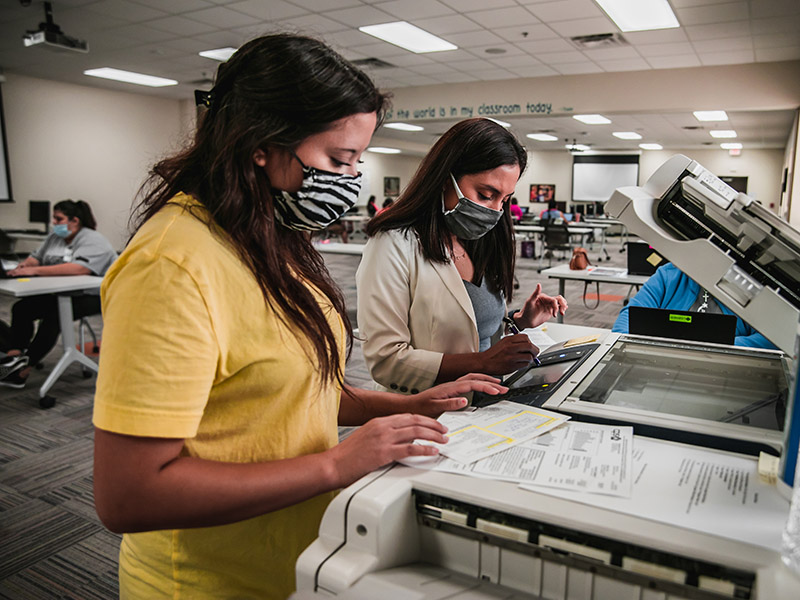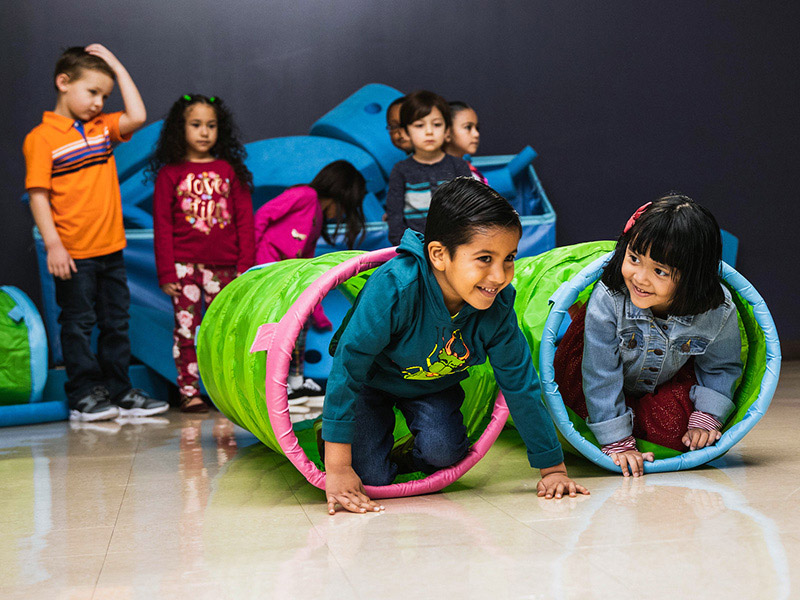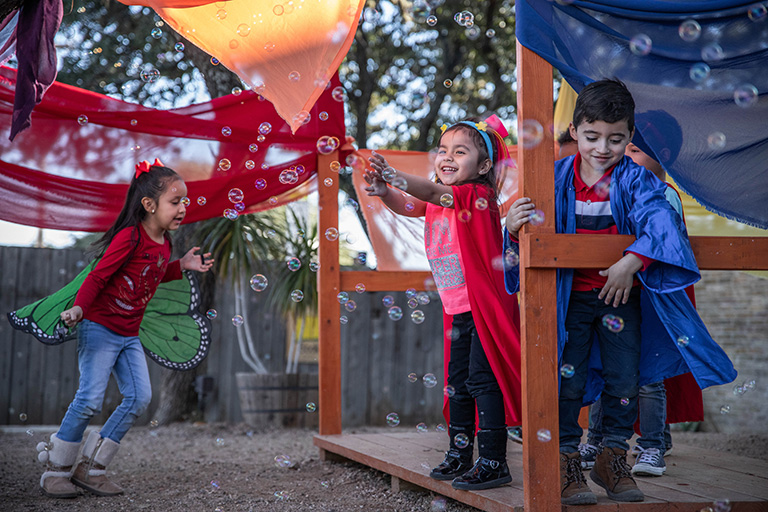For the last eight years, Pre-K 4 SA’s 4-year-olds have inspired local artists to create quality art pieces to benefit nonprofit initiatives.
At Pre-K 4 SA, through an innovative curriculum-driven program called Gracias San Antonio: Children Are Citizens, 4-year-olds are learning how to become civic-minded individuals; and they love every moment of supporting the community, creating art, and learning about local nonprofits. Gracias San Antonio is grounded in the belief that children are not just future citizens, but also are citizens of the city in the here and now, with the right to express their opinions and participate in the civic and cultural life of San Antonio.
“This is my eighth year with Pre-K 4 SA, and I feel Gracias gets better every year! It’s such an awesome event that allows our students to work alongside some of San Antonio’s best artists,” said Stephanie Flores, East Center master teacher.
Since 2013, Gracias San Antonio has raised more than $33,000 for the following nonprofits: Good Samaritan Community Services, San Antonio Humane Society, Any Baby Can of San Antonio, Children’s Shelter, Child Safe, St. Pj’s Children’s Home, and Therapy Animals of San Antonio.
Gracias San Antonio is a six-month project where children have the opportunity to vote for a nonprofit, explore the best of San Antonio’s landmarks, and bring their inspirations to life through art right in their classrooms.
Every year, in November, Pre-K 4 SA children vote in a school-wide election to select a nonprofit organization the children learn about and support throughout the year. On election day—scheduled on the same day as the actual election—Pre-K 4 SA’s Parent Cafés are transformed into mock-up voting polls. American flags and red, white, and blue streamers adorn the voting polls, and children one-by-one cast their vote as they choose their nonprofit of choice. Also, Pre-K 4 SA children, families, and staff participate in volunteer opportunities with the nonprofit.
In December, teachers invite children and their families to engage in City Explorations around San Antonio to help children learn about their city. San Antonio becomes the classroom and the children the explorers as they visit local parks, historic city sites, art exhibits, monuments, and local establishments. These explorations serve for children to gain ideas and inspiration for their art collaborations with their classroom artists.
In January and February, the art creation process begins. Pre-K 4 SA strongly believes that by engaging students in art experiences at a young age, children more deeply develop their thinking and creativity, learning to express themselves. Therefore, local artists join children in the classroom to create authentic art pieces using a variety of artistic mediums to express the children’s perspective of their city and the places they visit and explore. More than 100 art pieces are then displayed in a public gallery exhibit in April and auctioned to raise money for the selected nonprofit organization.
“Their own fearless creativity inspires me to create an art piece. As adults, we get used to being told, ‘this won’t work’ or ‘it has to be done this way’ that we hold our own creativity back. Kids don’t buy into that. Their imagination allows them to think outside of the box,” said Mary Klonek-Reyes, local San Antonio artist and returning Gracias volunteer. “I love how energetic and excited the kids get to learn new techniques and use new tools. Anything you teach a child has the ability to breathe new meaning into their existence, to open their eyes to new possibilities and new ways of thinking and feeling.”
The THRU Project was selected by children and their families as the 2021-2022 school year beneficiary nonprofit. Their mission is to help foster youth overcome the challenges of growing up in a foster care system by providing guidance, support, and advocacy to prepare them for life after foster care.
“The THRU Project team was thrilled to be selected as this year’s Gracias Project beneficiary by the youth and families at Pre-K 4 SA,” said Courtney Laverty, CFRE and CEO of THRU Project. “This partnership will enable us to provide mentors, life skills training and housing for current foster youth and those who have aged out. Thank you for helping to bridge the gap between foster care and adulthood!”
As the world becomes increasingly more globalized and connected, knowledge of ourselves as individual learners and as members of a community becomes more important. Through Gracias San Antonio children have the opportunity to become active contributors within their community in order to make their city a better place to work, play, and live.
Stay connected to Pre-K 4 SA’s social media platforms to find out more about our Gracias San Antonio yearly activities and to be the first one to know when the 2021-2022 Gracias San Antonio Online Art Auction opens.
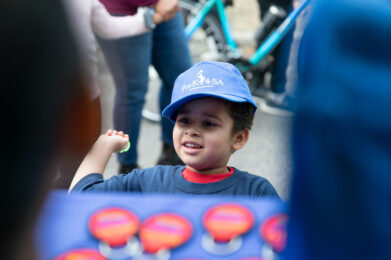
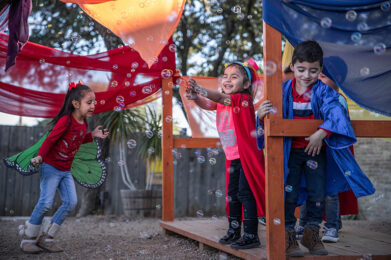
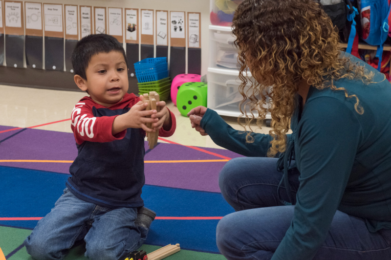

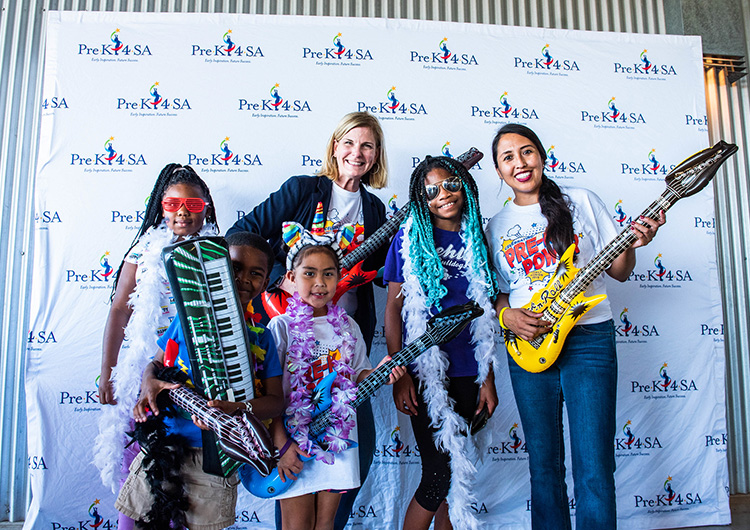
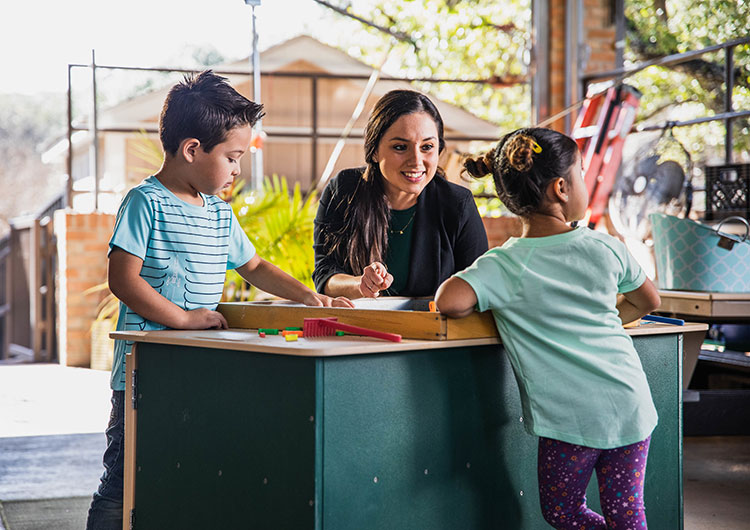
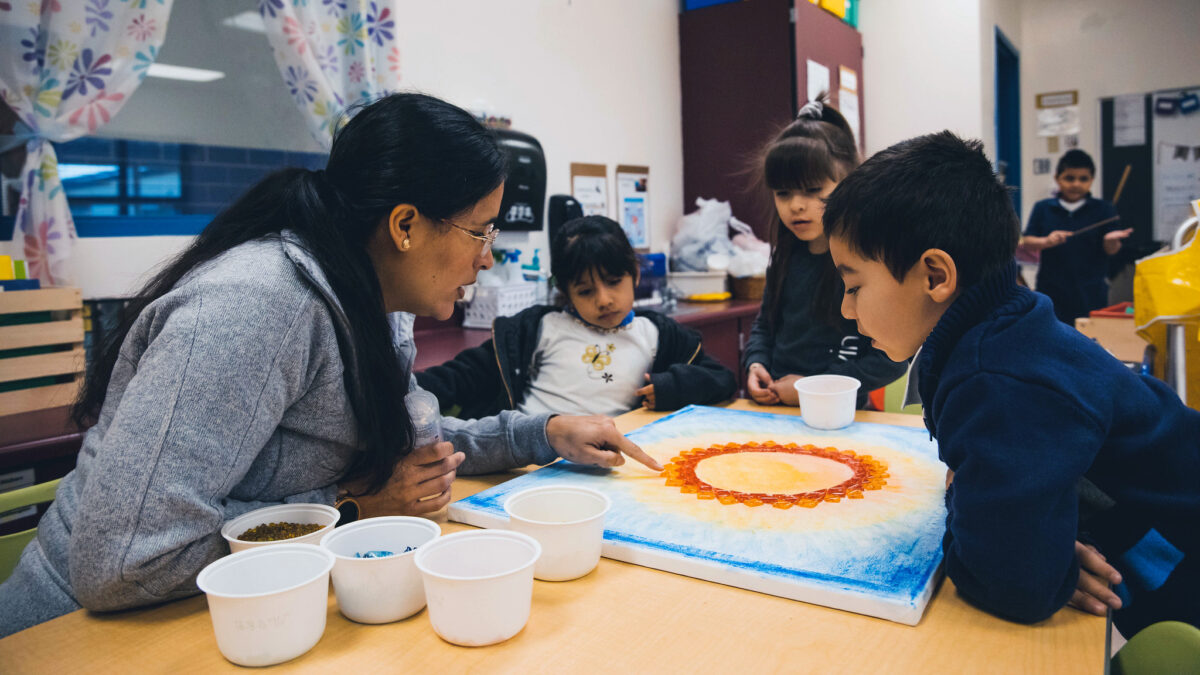
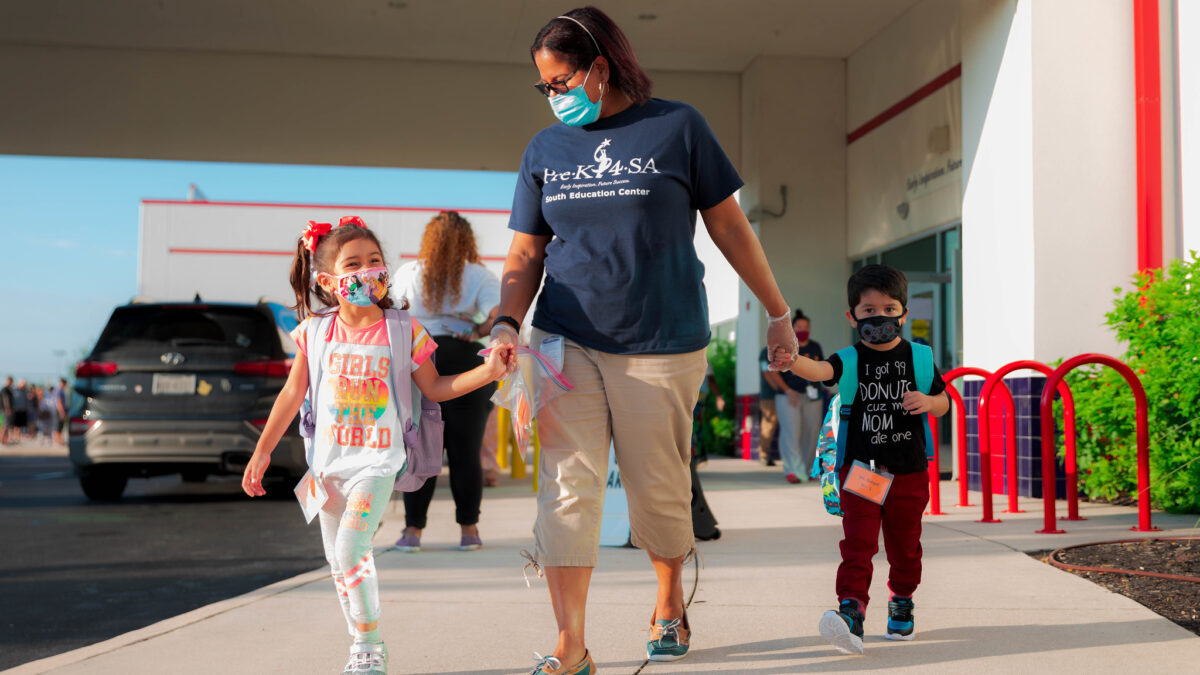
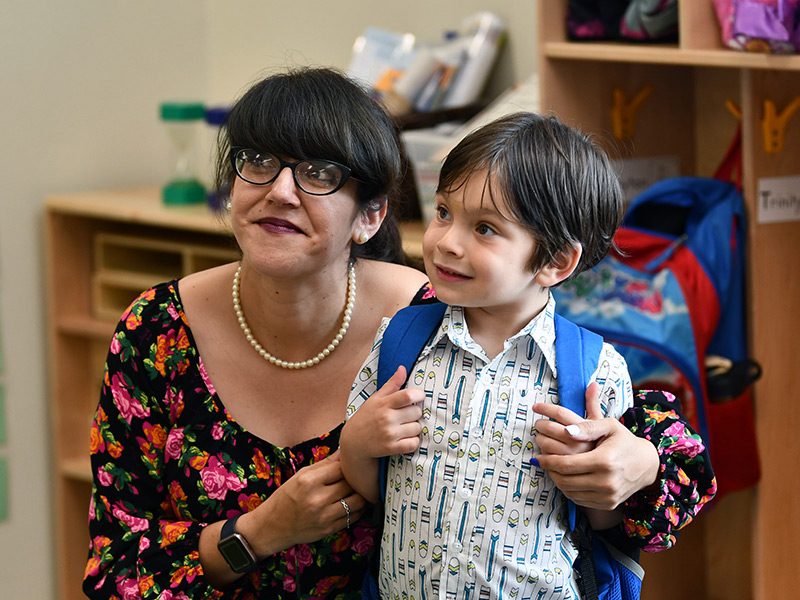
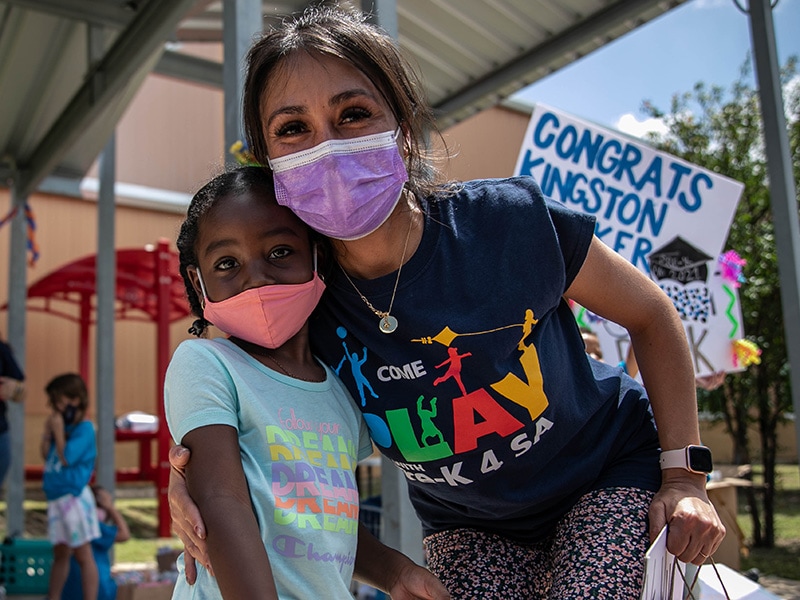
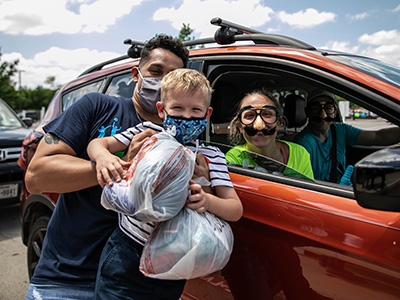 In an effort to create options for families, Pre-K 4 SA, for the very first time, offered a remote learning track along with the traditional in-person option. This allowed parents to feel more at ease as they decided on the best option for their child’s education.
In an effort to create options for families, Pre-K 4 SA, for the very first time, offered a remote learning track along with the traditional in-person option. This allowed parents to feel more at ease as they decided on the best option for their child’s education.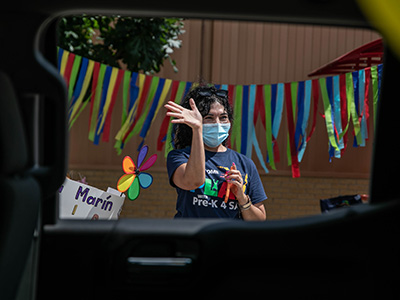 Additionally, at that given time, the guidance on COVID-19 suggested the virus could spread through airborne transmission. To prevent this from happening, the HVAC systems at all four Education Centers were adjusted to bring more fresh air into the classrooms by adding higher grade air filters to capture germs.
Additionally, at that given time, the guidance on COVID-19 suggested the virus could spread through airborne transmission. To prevent this from happening, the HVAC systems at all four Education Centers were adjusted to bring more fresh air into the classrooms by adding higher grade air filters to capture germs.